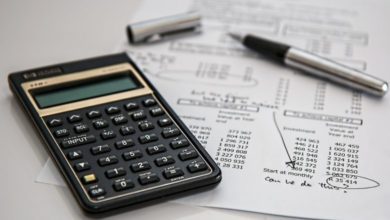
The global business landscape is increasingly prioritising sustainability, and the accounting industry in the UK is no different. It is imperative for an accounting firm to adopt sustainable practices, not only for environmental benefits but also for enhancing the firm’s reputation and profitability. Embracing sustainability in business operations can result in cost reduction and increased efficiency, ultimately contributing to higher profitability.
According to Snowdrop Solutions, 81% of adults in Great Britain have reported making changes to their lifestyle in order to help reduce climate change, which demonstrates the increasing understanding amongst society about the importance of living sustainably. Additionally, according to research by Sustainable Consumer, a third of consumers look for brands with strong sustainable (34%) and ethical (30%) credentials.
Consequently, adopting a sustainable approach allows an accounting firm to establish itself as a leader in advocating sustainable practices within the business community. This not only aids in regulatory compliance but also keeps the firm ahead of evolving environmental regulations, minimising legal risks.
Listed below are a few ways accountancy practices can become more sustainable.
Use technology
One of the simplest and most effective ways for accountancy practices to become more sustainable is by embracing technology. For instance paper-based accounting can be reduced as accounting firms can resort to using cloud-based accounting softwares. This not only reduces waste but also reduces the environmental impact of printing and shipping paper documents.
With the help of the cloud, firms can store a variety of documents such as spreadsheets, timesheets, invoices, tax forms, payroll slips and payment reminders. Doug Sleeter, accounting industry expert, says: “Taking the paper out of processes’ is the key change that tax professionals and firms should make.”
Additionally, accountancy firms can reduce its carbon footprint by resorting to digital tools like video conferencing and online collaboration tools. In this way companies are able to eliminate the need for travel.
Adhere to sustainable practices at work
The adoption of sustainable practices in the workplace can also contribute to the sustainability of accounting practices. This could involve energy-saving lighting, recycling programmes, and the use of eco-friendly cleaning supplies. These tiny steps can build up to have a big effect on how environmentally friendly a practice is.
For instance Dains Accountants has recently committed to a range of climate positive initiatives such as access to affordable electric cars for employees, reducing the firm’s energy use around IT and planting trees in its own forest garden.
Reach out to sustainable suppliers
Choosing to conduct business with environmentally conscious suppliers and companies would be a sustainable decision. Find out if possible partners or suppliers share your vision and ideals for sustainability by doing some research on them.
Prior to entering into a collaboration, it is imperative to take into account their ethical labour practices, utilisation of renewable resources, and efforts towards waste reduction. While some energy companies promise 100% renewable energy, others offer a combination of energy sources. Working with environmentally friendly vendors demonstrates your company’s dedication to CSR.
Encourage sustainable behaviour among clients
Accounting firms have a special chance to promote sustainable conduct in their clientele. For instance, practices could provide services linked to sustainability, such as assessments of carbon footprints or recommendations for lowering energy use.
Furthermore, by exhibiting their own sustainable projects—like installing energy-efficient lighting—practices could encourage sustainable practices among their clientele.
Report on sustainability metrics
Finally, by disclosing their own sustainability measures, accounting procedures can become more environmentally friendly. This can entail monitoring data on carbon emissions, paper use, and energy use. Practices may hold themselves accountable and show stakeholders and clients that they are committed to sustainability by disclosing these data to the public.
Stay up-to-date
Accounting procedures must stay current with the most recent advancements in environmental rules, climate change policies, and sustainability. Attending conferences, webinars, and workshops about sustainability reporting and green accounting is an ideal way to accomplish that. Additionally, since they frequently offer helpful tools and networking possibilities, businesses can interact with networks and groups within their industry that concentrate on sustainable practices.









